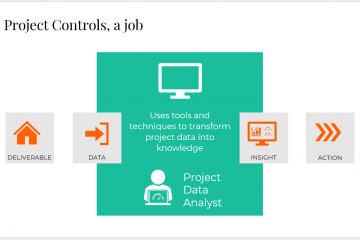Here are the takeaways on the subject of negotiation from the IACCM Europe Conference 2019. I attended the following sessions:
- Tiffany Kemp and Keld Jensen shared some “negotiation experiences from the trenches”.
- Tiffany also had a session about “The perils of fighting on two fronts at once: why stakeholder management is critical to negotiation success”.
- Keld brought us a short form of his “SMARTnership negotiation workshop”
Trust in negotiation
Keld stressed the importance of trust in negotiation. The higher the level of trust, the better the results and the lower the transactional costs.
In complex negotiations, there is no luxury of time to build up trust. Therefore, we need to verbalize trust:
- Confirming the need for trust;
- Say what people will do when trust is falling;
- Establishing a “code of conduct” in negotiation: the parties should be honest and transparent, shouldn’t lie nor bluff etc.
Such a “code of conduct” actually increases honesty. If we are reminded to be good, we actually do that. Most people don’t want to lie or bluff. This code of conduct is like a contract for negotiating the contract and usually established a week before.
Someone from the public was wondering what would be the consequences of breaching this code of conduct: “negotiation is as an audition for the performance of the real contract”. If people already fail on what they agreed in their “code of conduct”, they will probably not reach an agreement anyway.
Stakeholder management
In her session on stakeholder management, Tiffany mentioned that collaborative behavior is far less practiced than collaborative theory is preached.
A common idea for negotiators is that “negotiation with counterparts is OK but the internal stakeholders make their life terrible”. She encourages people to make a RACI matrix or responsibility assignment matrix for the stakeholders in a negotiation on each of the key deal points. The RACI letters stand for Responsible, Accountable, Consulted and Informed.

SMARTnership negotiation workshop
We do contracts to create financial benefit. We have to make sure that the counterpart is successful and happy but not at our expense. At the start of a negotiation, we have to be able to say to the counterpart: “we are here to try to improve your profit, reduce your risks and manage liability”. And vice versa for the counterpart.
Facts from Keld:
- According to studies, 42% of the value present is not captured in negotiations.
- Trust has plummeted with 55% in the last 20 years.
Can you price trust? Yes. Keld showed it with an example of the price reduction required to make us shift from a long-standing appreciated supplier to an alternative supplier of whom we dislike the sales representative: 5%, 7%, 10%, …? Depends. But there is definitely a value linked to trust.
Unfortunately, many people still see negotiation as a zero-sum game, as haggling, as a competition. The party that is getting less is unhappy and up for revenge. Even partnerships are typically based on limited disclosure and minimal trust.
Keld’s concept of SMARTnership is to find the true potential creating added value through 346 variables across industries. The goal is to find asymmetric differences. But this exercise requires trust and transparance. Typically, people negotiate on too few variables: price … and few more.
Conclusions
At an inquiry at the World Economic Forum, negotiation came out as the fifth most important skill regardless of the job one is in.
One of the reasons why even experienced negotiators never become good at it is … because they don’t like to negotiate.
Better to start liking it! Some training or coaching will sure help.
Click here for other articles about negotiation on this blog.
About AfiTaC
AfiTaC.com is the blog on commercial and contractual subjects for the Project Businesses (Construction, Infrastructure, Oil & Gas, Power & Renewable, Water Supply & Sanitation, etc). Its objective is to stimulate reflection, learning, convergence to balanced contracts and positive dispute resolution. You can subscribe to our newsletter by writing to “newsletter@afitac.com”. You can also connect to our LinkedIn page. Engagement with the readers is what keeps us going. So, don’t hesitate to exchange with us by commenting here below, liking our publication on LinkedIn and writing to us “info@afitac.com”.


5 Comments
IACCM Europe Conference 2019, some takeaways - AfiTaC.com · 20 May 2019 at 21 h 20 min
[…] Negotiation: feedback from IACCM Europe Conference […]
Contract Management & Technology: feedback from IACCM Europe Conference - AfiTaC.com · 21 May 2019 at 9 h 01 min
[…] Negotiation: feedback from IACCM Europe Conference […]
Contract Management & Music, The Rolling Stones on contract negotiation - AfiTaC · 10 July 2019 at 16 h 03 min
[…] Negotiation: feedback from IACCM Europe Conference […]
Hiding or sharing information during negotiation? - AfiTaC · 18 December 2019 at 23 h 47 min
[…] at it – and so does your counterpart – you can move to the next level of negotiation: Smartnership and NegoEconomics, which are trademarks of Keld Jensen’s awarded negotiation […]
Cacher ou partager les informations pendant la négociation ? - AfiTaC · 5 May 2021 at 19 h 39 min
[…] – et votre homologue aussi – vous pouvez passer au niveau de négociation ultime : Smartnership et NegoEconomics, qui sont des marques déposées de la méthodologie de négociation primée de […]